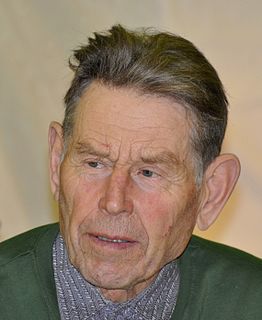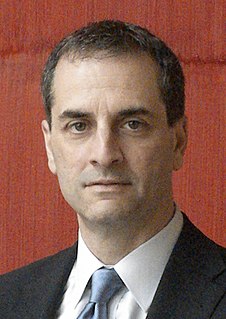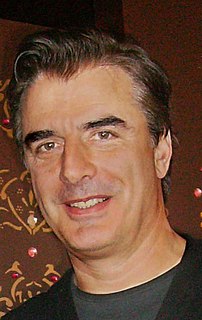A Quote by Margaret Atwood
My father was a forest entomologist, which means he was aware that spraying forests for spruce budworm was counterproductive in that it didn't really work, and it killed everything else in the forests, and it wasn't good for the people who were exposed to it, either. So he was an early proponent of not doing that, but, of course, nobody listened.
Related Quotes
My personal background is actually very unusual for the kind of career I chose. I didn?t meet anyone who had ever done physics in my life. I grew up in the Himalayan forests. My father was a forest conservator, which meant that if I wasn?t in school I was in the forests with him. That has been very largely responsible for my ecological inclinations.
A people without children would face a hopeless future; a country without trees is almost as helpless; forests which are so used that they cannot renew themselves will soon vanish, and with them all their benefits. A true forest is not merely a storehouse full of wood, but, as it were, a factory of wood and at the same time a reservoir of water. When you help to preserve our forests or plant new ones you are acting the part of good citizens.
Virtually, Finnish woods are stripped so bare, so sold out and first and foremost, so long way off from genuine diverse natural forest, that the resources of language will not permit excessive words. Finnish forest economy has been compared to the ravaging of rain forests. Nevertheless, the noteworthy difference is that there is a half or two thirds left from rain forests, but from Finnish forests there is left - excluding arctic Lapland - 0,6 per cent.
My sense is that the most under-appreciated-and perhaps most under-researched-linkages between forests and food security are the roles that forest-based ecosystem services play in underpinning sustainable agricultural production. Forests regulate hydrological services including the quantity, quality, and timing of water available for irrigation. Forest-based bats and bees pollinate crops. Forests mitigate impacts of climate change and extreme weather events at the landscape scale.
For the rains and the rivers you need forests and you need to make sure these your forests are all protected, that there is no logging, that there is no charcoal burning and all the activities that destroy the forest. All this really needs to be done so that you can be able to grow good coffee, so that you can have an income, so that you can send your children to school, so that you can buy medicine, so that you can take them to hospitals, so that you can care for the women, especially mothers.
One of the reasons why I say we all need to work together to save the Congo forest, because if we don't save the Congo forest, the Amazon forest and the southeast Asia forest, if those forests release the carbon they are trapping at the moment, much of what you will be doing in the North will be negated by the amount of carbon released into the atmosphere.
I want to do the right things - I want to plant trees, I want to make sure that the indigenous forests are protected because I know, whatever happens, these are the forests that contain biodiversity, these are the forests that help us retain water when it rains and keep our rivers flowing, these are the forests that many future generations will need.
My father had been a forester and I had grown up on those hills. I had seen forests and streams disappear. I jumped into Chipko movement and started to work with the peasant women. I learned from them about what forests mean for a rural woman in India in terms of firewood and fodder and medicinal plants and rich knowledge.
There were two forests for every one you entered. There was the one you walked in, the physical echo, and then there was the one that was connected to all the other forests, with no consideration of distance, or time. The forest primeval, remembered through the collective memory of every tree in the same way that people remembered myth- through the collective subconscious that Jung mapped, the shared mythic resonance that lay buried in every human mind. Legend and myth, all tangled in an alphabet of trees remembered, not always with understanding, but with wonder. With awe.
All forests have their own personality. I don't just mean the obvious differences, like how an English woodland is different from a Central American rain forest, or comparing tracts of West Coast redwoods to the saguaro forests of the American Southwest... they each have their own gossip, their own sound, their own rustling whispers and smells. A voice speaks up when you enter their acres that can't be mistaken for one you'd hear anyplace else, a voice true to those particular tress, individual rather than of their species.


































